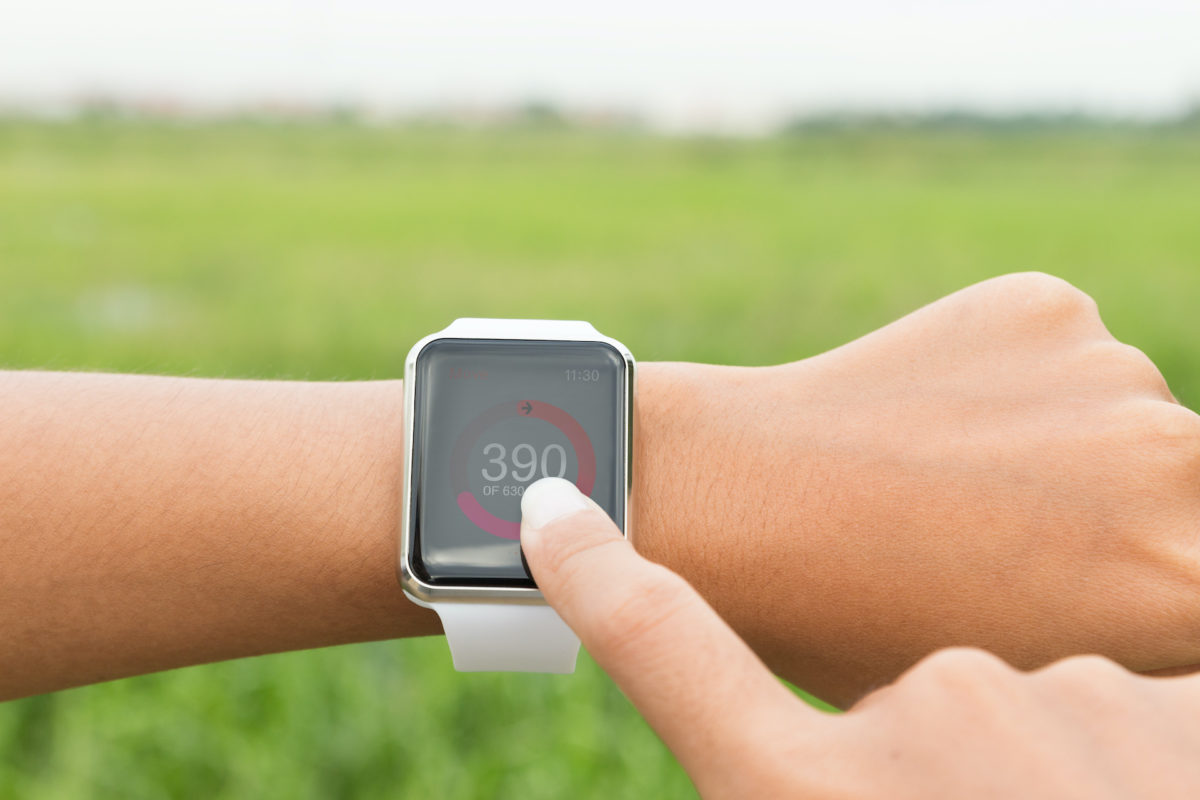Beyond Step Counting: How Wearable Tech Impacts the Healthcare Industry
Wearable technology has become more mainstream in recent years with devices like the Apple Watch and Fitbit gaining popularity among health-conscious consumers. The demand for wearable technology grows as people are becoming increasingly invested in their own health, and these devices have found their place within the healthcare sector as a tool for educating and empowering people to make wellness a priority.
Wearable technology (“wearables”) refers to electronic devices that are designed as accessories to be worn on the body. Some of the most popular types of wearables are fitness and activity trackers, such as the Fitbit, that monitor users’ physical activity level by tracking their steps, walking distance, and heart rate. The capabilities of wearable technology go beyond just step counting; these powerful devices have great potential within the healthcare industry.
Primarily, wearable technology incentivizes healthy habits in patients that reduce hospital visits and readmissions and lead to better health outcomes. According to a study from the Journal of Medical Internet Research observing the effects of wearables on patient behavior, wellness group participants who wore an activity tracker saw clinical improvements such as weight loss and lower cholesterol and reported positive changes in their attitude toward physical activity. The study demonstrates the benefits of wearable technology as an educational and motivational tool. Users receive immediate feedback on their physical activity which helps them understand their baseline activity level and identify areas for improvement. Wearable devices motivate users by providing a visual reminder of the user’s progress. The rewarding feeling of reaching a daily activity goal improves the wearer’s attitude toward physical activity and is a strong motivator in maintaining an active lifestyle. By positively reinforcing healthy behavior in users, wearable technology has the ability to influence population health by promoting lifestyle changes that reduce the risk of chronic conditions.
Wearable technology offers a holistic view of an individual’s health by supporting both their physical and mental well-being. Just as activity trackers positively reinforce behaviors that improve physical health, other wearable devices help support users’ mental health. For example, smart watches can help people manage stress with gentle reminders to breathe, stretch, and take breaks throughout the day. Users can access guided meditations and breathing exercises on the go, as well as track and analyze their sleep cycle to improve their quality of rest. These devices are useful in supporting day-to-day management of mental and physical health, but also have the potential to aid in more specialized medical needs.
Wearable technology can be especially helpful in managing chronic conditions like diabetes. Wearable smart devices are compatible with apps that support diabetic treatment from glucose monitoring and medication adherence to calorie and nutrient tracking. For example, Apple Watch users can sync their device with a compatible glucose monitoring system to provide real-time glucose readings, turning their smart watch into a real glucometer. Users can accurately monitor their blood sugar right from their wrist and receive alerts when levels are too high or too low.
Wearable technology offers a holistic view of an individual’s health by supporting both their physical and mental well-being.
Wearables can also simplify medication adherence by delivering daily reminders to patients’ devices when it’s time to test their blood sugar or take their insulin. Many diabetes management apps provide in-depth reports that can be easily shared with healthcare providers, helping patients and their physicians accurately monitor trends in their condition and responses to treatment. These are just a few examples of how wearable technology helps people better understand their health so they can make informed decisions about their care.

Another important benefit of wearable technology in healthcare is facilitating better communication between patient and provider. Wearable technology presents some game-changing opportunities for healthcare providers. Fitness trackers, smart health watches, ECG monitors, blood pressure monitors, wearable biosensors and more, these devices allow physicians to continuously and accurately monitor patients’ health in a non-invasive way. Research from Johns Hopkins suggests that wearable activity trackers provide a more accurate measure of physical activity than self-reporting and can be a reliable method for assessing death risk in older adults. With wearable technology, important health data and medical records can be remotely and securely shared between patient and provider, allowing for a convenient and collaborative continuum of care. According to a report on digital health adoption, 57% of consumers surveyed said they would choose remote monitoring of ongoing health issues through at-home devices if given the option. With the relatively low cost of wearable devices compared to other methods of care delivery, providers could implement this technology to increase access to healthcare and offer more options for remote care.
GoMo Health is all about meeting people in their daily lives and empowering them to take an active role in their own health, and wearable technology is an important tool in facilitating patient engagement and improving health outcomes. Like wearable technology, our digital health solutions are designed to increase resiliency in patients and clinicians by combining evidence-based motivational and activation techniques to engage people in their daily lives.
No two people are identical
Our science, BehavioralRx, precisely treats each person, not their disease. Similar to wearable technology, our solutions partner with and support people in their day-to-day-lifestyle.







Find Us Online